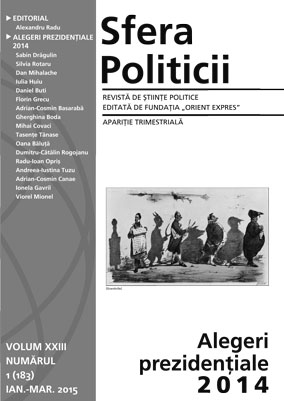The electoral campaign through Social Media. Case Study – 2014 Presidential elections in Romania
The electoral campaign through Social Media. Case Study – 2014 Presidential elections in Romania
Author(s): Tasențe TănaseSubject(s): Politics / Political Sciences
Published by: Fundaţia »Societatea Civilă« (FSC)
Keywords: political communication; Social Media; Presidential elections; Facebook; interactions
Summary/Abstract: Developing a real network-society, the political communication through Social Media is no longer performing unidirectional, the political actors and the journalists do not have the same influence on the masses, as they had in the classic systems of political communication and the online opinion leaders have become key-factors in all this equation. In this sense, the main purpose of online campaign staff is to empower fans to interact with the posts of the candidate. Thus, any kind of feedback – like, comment or share – decentralizes the political message in social groups of fans, where he has a greater influence than the political actor. Once the message is discussed in social groups, strong ties (friends) of the fans are persuaded to become, in their turn, fans of the political actor and the conversion rate increase and this process will continue as long as interaction rate is high. In this paper, we aim to analyse the communication process through Facebook in the electoral campaign for the 2014 Romanian Presidential Elections and to compare the level of support for candidates on Facebook and for the real vote.
Journal: Sfera Politicii
- Issue Year: XXIII/2015
- Issue No: 183/1
- Page Range: 92-104
- Page Count: 13
- Language: English

